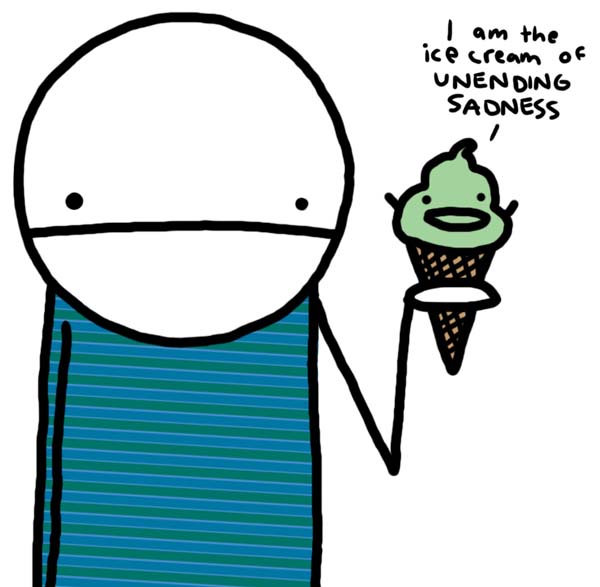You scroll across your contacts in your mobile phone and you found no one to call up for a lunch out. You open up a new message box and end up clearing the text you've typed because there's no one you thought would be free enough to reply. You log on to instant messenger online and log off in three minutes after you realise those who are online aren't people you could actually chat with.
And then you shut down computer, turn off phone, sit in front of the 24-hour-entertaining television set and start to wane in blues. Those are the times we call ourselves feeling lonely.
But are we totally alone with our loneliness? We may always have thought that loneliness is a completely self-contained emotional state. However, study shows that loneliness is actually contagious. Yes, loneliness, like flu or cold, could spread from one person to another.
According to a research led by University of Chicago Center for Cognitive and Social Neuroscience director John Cacioppo, loneliness can be transmitted from one person to another, whether in person, on the phone or even online. And in turn, this spreading of loneliness influences the pattern of social network around the lonely person. - Chicago tribune
The results of the study shows that when a person admits feeling lonely at one point, his or her family and close friends will be 52% more likely to encounter loneliness two years later. The contagious effect of loneliness will remain significant up to three degrees of separation. It means that when you are feeling lonely, you could influence your friend's friend's friend to feel lonely. - Time magazine
Besides, the researchers also found that when a person feels lonely for one more day in a week than usual, his or her neighbours who are close friends would experience increased loneliness. - Science daily
It sounds bizarre - that your next-door neighbour, and even your friend's friend's friend whom you may not even heard about his/her name before could feel lonely because you are lonely. Surprising as it sounds, but how does this really happen? What it really takes to make a lonely person makes another person or even a stranger lonely?
According to Cacioppo's research, there is a pattern of contagion that over a period of time, the group of lonely people will be gradually moved to the edge of social networks. In other words, when people become lonely, they become more and more disconnected with the society. - Science Daily
"On the periphery people have fewer friends, yet their loneliness leads them to losing the few ties they have left," said Caciappo in an article published in Science daily.
However, before they lose the last few ties, they spread their feelings of loneliness to their remaining friends, who would then also become lonely.
"People who feel lonely view the social world as more threatening," said Caciappo in an article published in Time magazine. "They may not be aware that they are doing it, but lonely individuals think negatively about other people. So if you are my friend, and I started to treat you negatively, then over time, we would stop being friends.
"But in the meantime, our interactions caused you to treat other people less positively, so you're likely to lose friends, and they in turn are likely to lose friends. That appears to be the means of transmission for loneliness," he added.
Frowning, making other unpleasant facial expressions, saying hurtful things or even adopting uninviting body postures are all it takes to spread negative feelings. - Time magazine
The significance of the results of this study is that it shows that "loneliness is more like an indicator of the social health of our species on the whole". To the psychology therapy field, it means treatment for loneliness not only involve the patients themselves, but also larger, society-based issues, that probably "there is almost a wave of loneliness that is being propagated by people two or three connections removed from them". - Time magazine
Now that we see how loneliness can be spread and its implication on a larger scale, the question that we should ask is: What can we do to help the situation?
Ultimately, loneliness is our "biological signal of hunger or thirst" (Chicago tribune); only that what we are hungry and thirst for is a helping hand, comforting words, and some wamrth in a friendly hug.
In the end of the day, we are not completely alone when we are lonely - your friend's friend's friend could feel lonely because you are lonely. Now, we are not really that isolated in this colder and colder world after all, are we?






2 comments:
i can tell that you were lonely too when writting this article^^ haha
liang: It's still good to have something to do when you're lonely. Better than none. Hah :)
Post a Comment